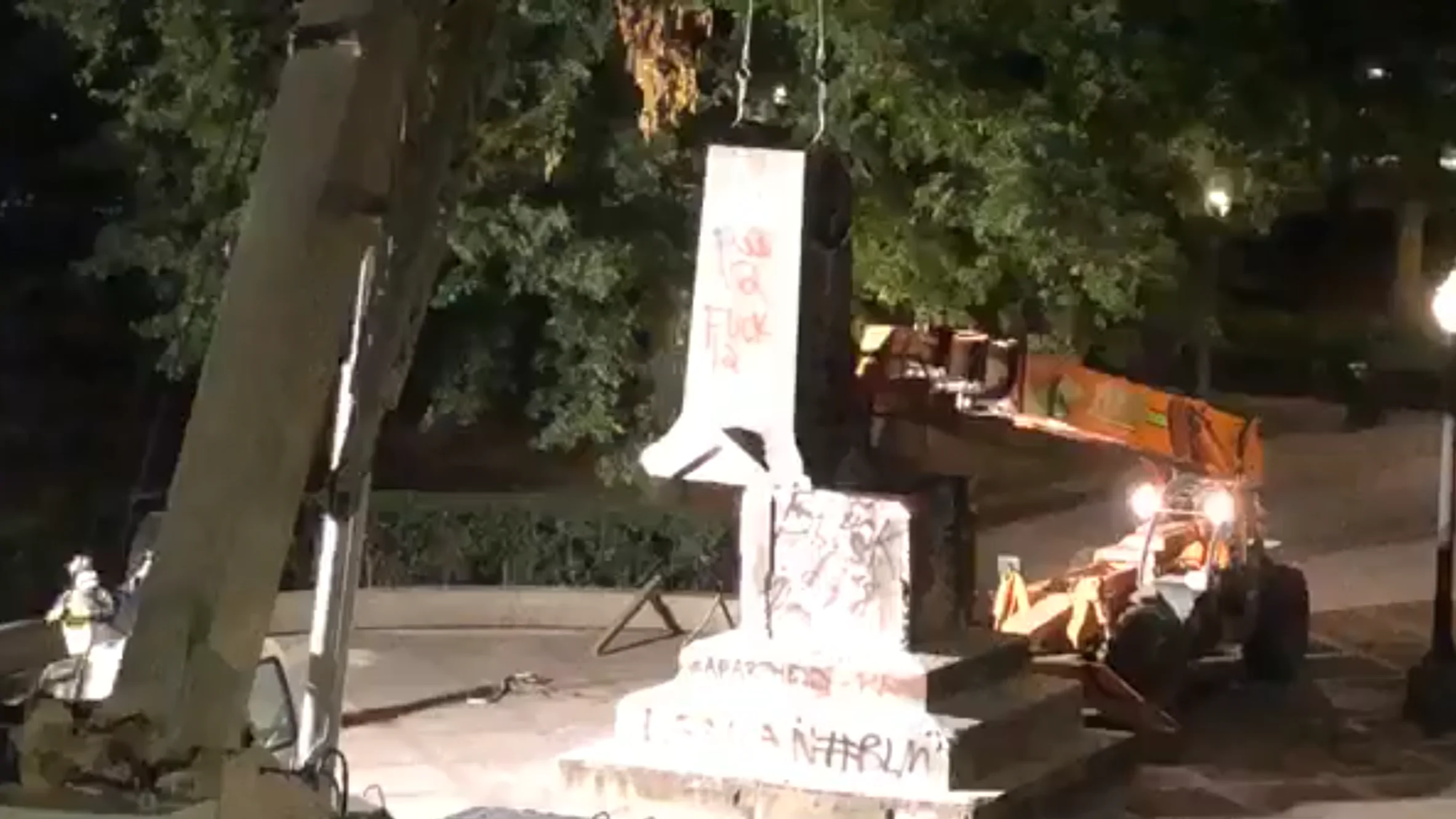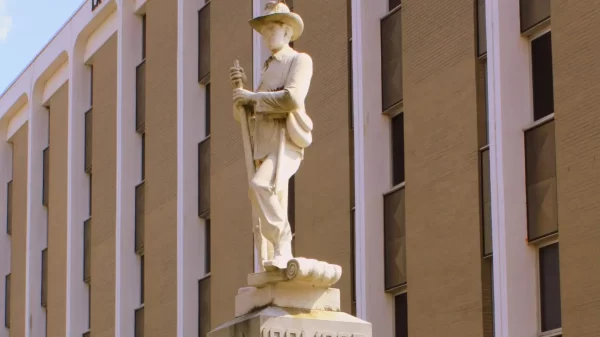During an Alabama House State Government Committee public hearing Wednesday on a bill that would strengthen Alabama’s Memorial Preservation Act, discussion bounced from the cause of the Civil War to the pain caused by looking at monuments to men who enslaved people.
Rep. Mike Holmes, R-Wetumpka, introduced HB242 which would strengthen the Alabama Memorial Preservation Act by enacting a $10,000 daily fine for elected officials and institutions, such as universities, for every day a monument is removed.
Holmes said the 2017 Memorial Preservation Act isn’t deterring the damaging and removal of the state’s monuments.
“Wholesale renaming of our schools, school buildings, streets etcetera,” Holmes said.
Committee member Rolanda Hollis, D-Birmingham, explained that Confederate monuments are a painful reminder of men who enslaved Black people.
“Some of these monuments are a disgrace to some of us,” Hollis said, explaining that the monuments represent a time years ago when racial violence was rampant. “People who looked like me were kidnaped. They were raped. They were beaten.”
Sonny Brasfield, executive director of the Association of County Commissions of Alabama, said he testified against the Monuments Preservation Act and is against Holme’s bill as well, which he said levels heavy fines on local officials, even if they themselves do not remove a monument.
“I believe the people who pick you are the same people who pick the county commissioners in your county, are smart enough to pick people who could make decisions on local issues,” Brasfield said, noting this is the only legislation he knows of that removes local officials the ability to make decisions.
Rep. John Rogers, D-Birmingham, expressed resentment for people of color who must go to schools named for those who fought to continue slavery.
“What you think I want my little Black daughter to go to school named Stonewall Jackson?,” Rogers said. “Name it after somebody else. Name it after Martin Luther King. Name it after John Lewis.”
“Maybe some of these other people don’t want to go to Martin Luther King School,” Holmes told Rogers.
Katie Glenn, policy associate with the SPLC Action Fund, said such monuments to the Confederacy, honoring the oppression and enslavement of black people, have no place in public life, or on public lands.
Glenn noted that 168 Confederate symbols were renamed or removed from public spaces in 2020.
“Twelve of those competitive Confederate symbols that were removed or renamed were right here in Alabama,” Glenn said, describing grassroots efforts in local communities to remove or rename them.
“These are not isolated incidents, but a statewide pattern of local communities pushing for change, and local officials responding to that pressure,” Glenn said.
Holmes told APR in February that two members of the Southern Cultural Center helped him as he drafted the legislation. The Southern Cultural Center is identified by the Southern Poverty Law Center as a hate group. The committee took no vote on Holme’s bill Wednesday, and it’s unclear when it may come back up for a vote in committee.






















































